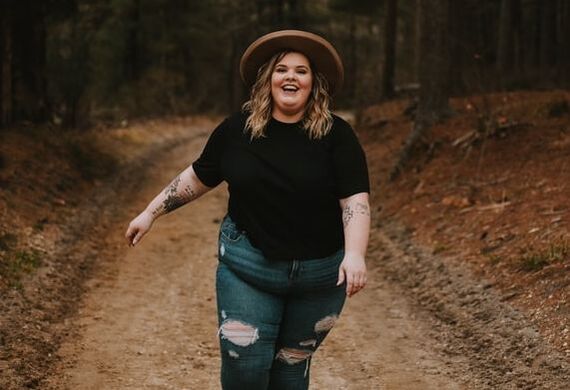Body Positivity: Definition, Quotes, & TipsWe all grapple with ways we wish our bodies were different, but body positivity encourages loving our physical selves just the way we are. Read on to learn the definition of body positivity and how you can practice it in your life.
Which of these daily actions are done out of self-love? Which do you engage in because you want to manage, improve, or change your body? If you’re like me, your motivation probably comes from the latter category more often than the former. You might ask the same questions regarding the food you eat and the clothes you wear. What is the intention behind these choices?
In our culture, forces internal and external draw our attention continuously to how we can “fix” our bodies to make them somehow finally acceptable. We all engage in this kind of thinking on some level – it’s so ubiquitous that it’s become ingrained, automatic. In American culture, it is only in the last couple generations that voices have begun to challenge the idea that our bodies are in constant need of improvement. From the feminist movement of the 1960s to movements led by Black women in the 1980s to present-day movements on social media, a new line of thinking has instead promoted body positivity (Cwynar-Horta, 2016; Darwin & Miller, 2021). Before reading on, if you're a therapist, coach, or wellness entrepreneur, be sure to grab our free Wellness Business Growth eBook to get expert tips and free resources that will help you grow your business exponentially. Are You a Therapist, Coach, or Wellness Entrepreneur?
Grab Our Free eBook to Learn How to
|
Are You a Therapist, Coach, or Wellness Entrepreneur?
Grab Our Free eBook to Learn How to Grow Your Wellness Business Fast!
|
Terms, Privacy & Affiliate Disclosure | Contact | FAQs
* The Berkeley Well-Being Institute. LLC is not affiliated with UC Berkeley.
Copyright © 2024, The Berkeley Well-Being Institute, LLC
* The Berkeley Well-Being Institute. LLC is not affiliated with UC Berkeley.
Copyright © 2024, The Berkeley Well-Being Institute, LLC




